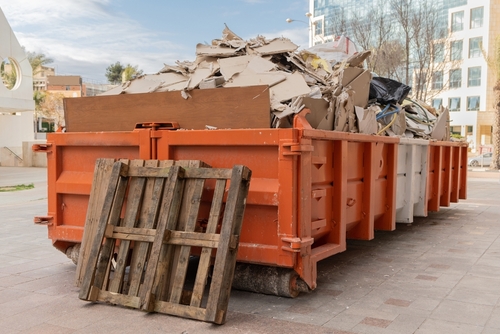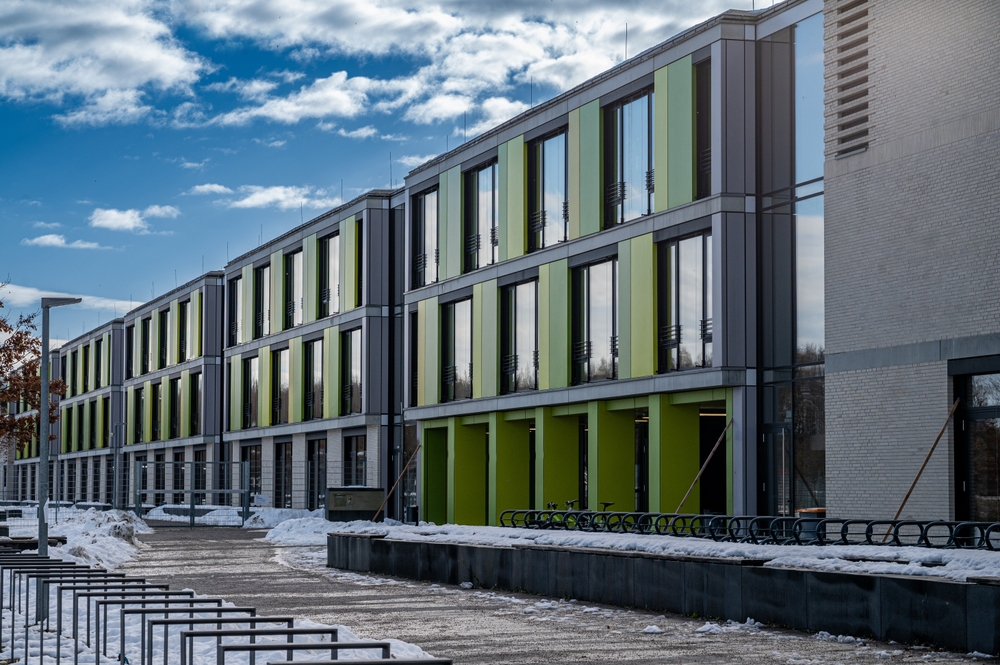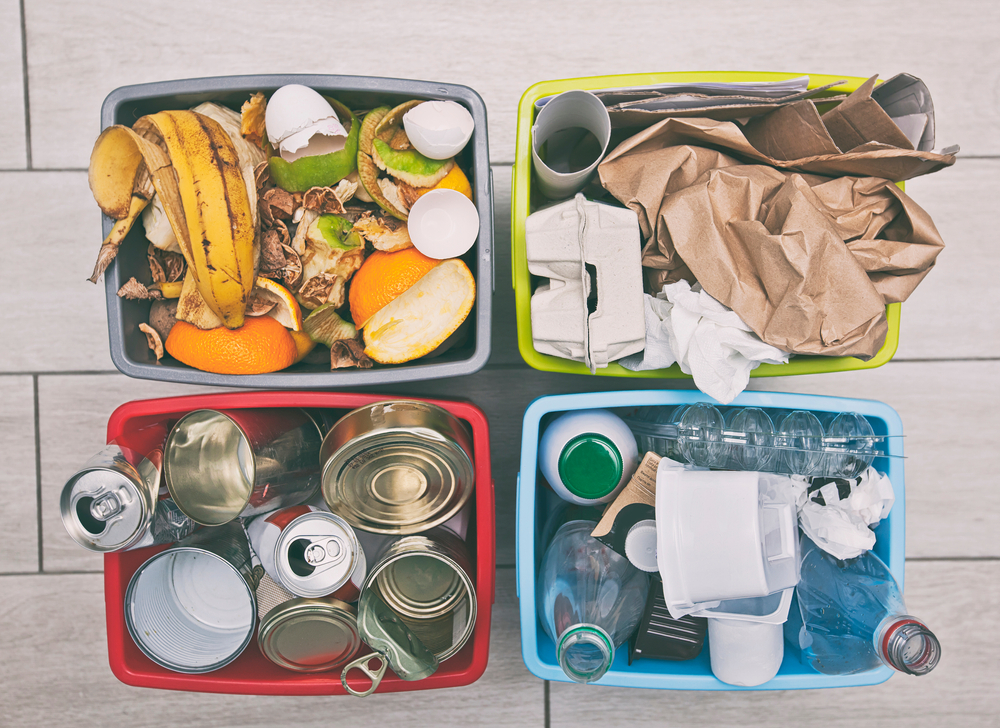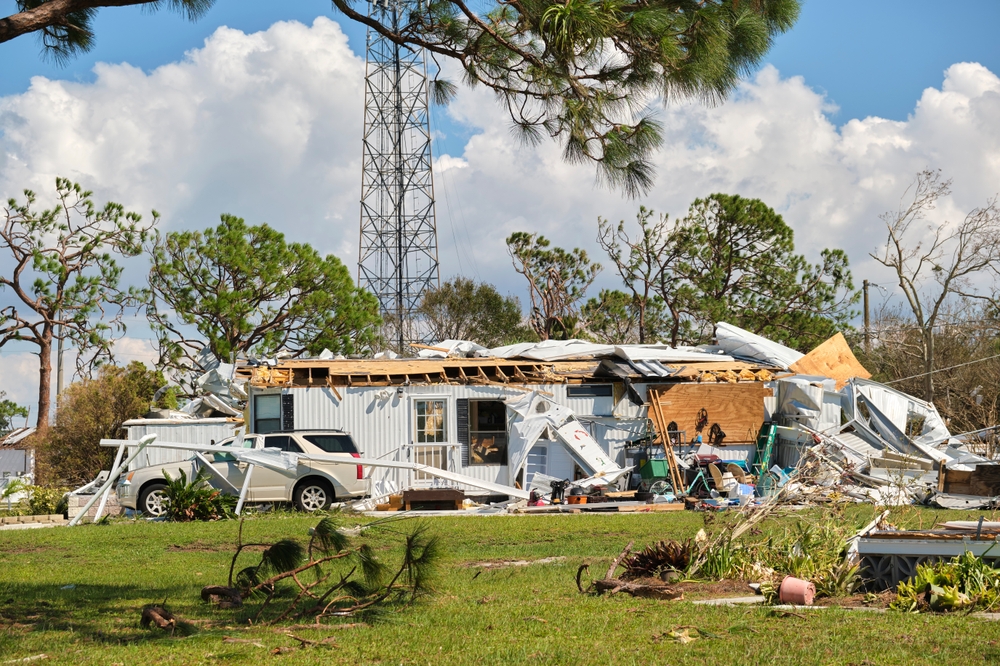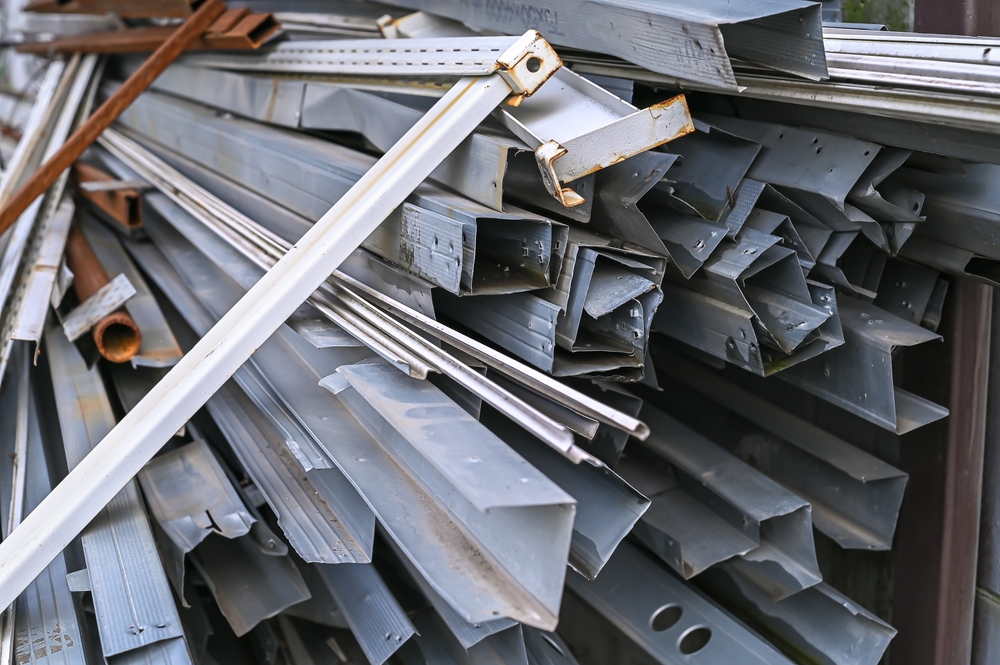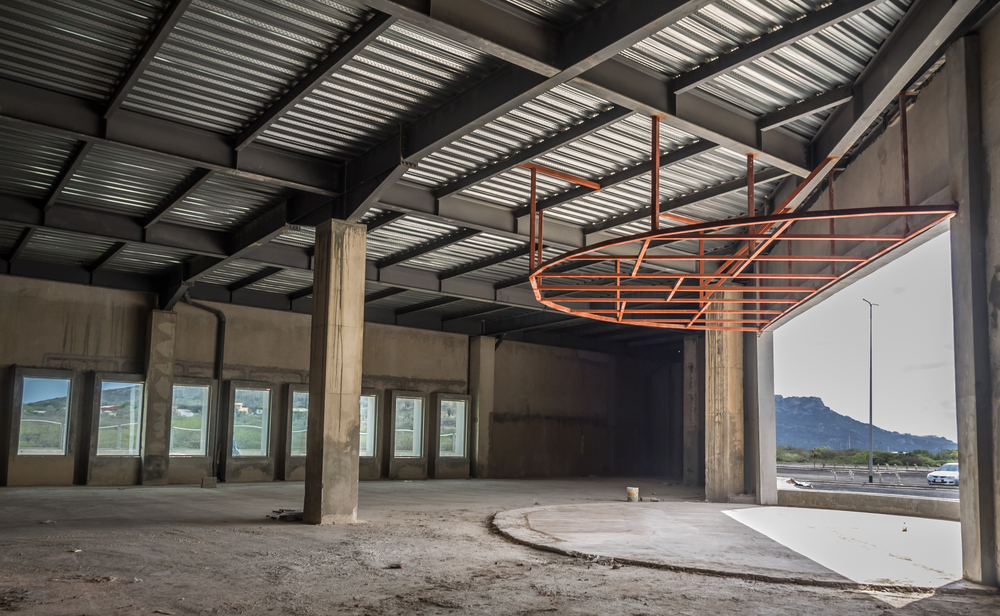July 2, 2024 - Benjamin Ehinger
What Size Dumpster Is Rented the Most? A Guide to Popular Choices
CALL NOW 844-762-8449
Are you planning a home renovation or a major clean-up project? One of the key considerations for managing your waste is selecting the right dumpster size. The most frequently rented dumpster size is the 20-yard dumpster. This size strikes a balance, providing ample space for a variety of projects without being too large for residential use.
Renting a dumpster can simplify your project by providing a convenient place to dispose of all your debris. The 20-yard option is favored due to its versatility, fitting comfortably in most driveways while holding the equivalent of eight pickup truck loads of waste. It’s perfect for medium-sized projects, from home renovations to garage cleanouts.
Choosing the right dumpster size can save you time and money. By considering the scope of your project and the amount of waste you expect, you can avoid the hassle of multiple trips to a landfill or paying for more space than you need. Understanding the specifics of your rental needs ensures a smoother process and better results.
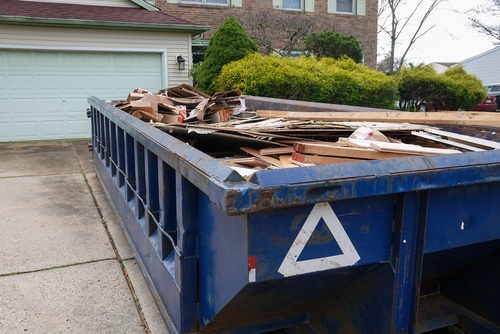 Several factors play crucial roles in determining the most appropriate dumpster size for your needs. These include the type of waste, the scope of your project, and local regulations. Understanding these considerations can help you make a well-informed decision.
Several factors play crucial roles in determining the most appropriate dumpster size for your needs. These include the type of waste, the scope of your project, and local regulations. Understanding these considerations can help you make a well-informed decision.
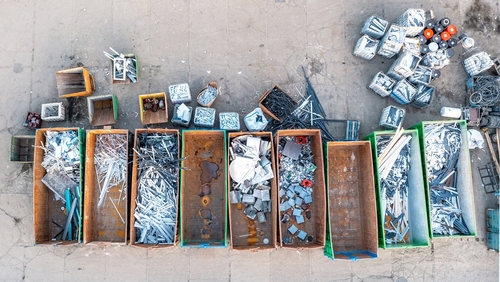 Selecting the correct dumpster size depends on the type and scope of your project. Factors like volume, weight limits, and the kind of debris play a crucial role.
Selecting the correct dumpster size depends on the type and scope of your project. Factors like volume, weight limits, and the kind of debris play a crucial role.
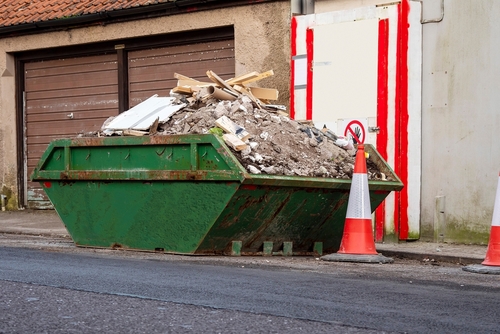 When renting a dumpster, it’s crucial to manage waste to minimize environmental impact. Proper disposal practices and a focus on recycling and sustainability can significantly contribute to eco-friendly waste management.
When renting a dumpster, it’s crucial to manage waste to minimize environmental impact. Proper disposal practices and a focus on recycling and sustainability can significantly contribute to eco-friendly waste management.
Key Takeaways
- The 20-yard dumpster is the most commonly rented size.
- It offers a balanced capacity, ideal for a range of projects.
- Choosing the right size saves time and money during your project.
Understanding Dumpster Sizes
When renting a dumpster, understanding the different sizes and their capacities is essential. Choosing the right one depends on the volume and type of waste you need to dispose of.Common Dumpster Dimensions
Dumpsters generally come in standard sizes ranging from 10 to 40 cubic yards. A 10-yard dumpster is often 12 feet long, 8 feet wide, and 3.5 feet high, suitable for small projects like garage cleanouts. The 20-yard dumpster, measuring approximately 22 feet long, 8 feet wide, and 4.5 feet high, works well for medium-sized renovation projects. For larger projects, the 30-yard dumpster, which is about 22 feet long, 8 feet wide, and 6 feet high, is a good option. The largest standard size, the 40-yard dumpster, is typically 22 feet long, 8 feet wide, and 8 feet high, ideal for major construction projects. Knowing these dimensions helps you plan for the space required to place the dumpster.Volume and Capacity
The volume of dumpsters is measured in cubic yards. A 10-yard dumpster can hold approximately three pickup truck loads of debris. The 20-yard container can manage about six truckloads, making it a versatile option for various projects. For more substantial needs, a 30-yard dumpster can contain nine truckloads of material. The 40-yard dumpster, with a capacity for about 12 truckloads, is suited for major cleanouts or construction activities. Understanding these capacities ensures you select a dumpster that accommodates your waste without requiring multiple rentals. By focusing on the specific dimensions and capacities, you can make an informed decision based on your project’s needs.Most Frequently Rented Dumpster Sizes
When renting dumpsters, different sizes cater to varying project needs. Key preferences often align with the type of project, whether residential or commercial.Residential vs. Commercial Rentals
Residential projects typically see a high demand for 10 and 15 yard dumpsters. These sizes are convenient for decluttering, small home renovations, and landscaping. A 20 yard dumpster is popular for larger home projects, such as roofing or extensive remodeling. It’s versatile for household waste without being too large. Commercial dumpster rentals frequently involve 30 and 40 yard dumpsters. These sizes handle significant amounts of debris from construction sites or large-scale cleanouts. Businesses often need these larger sizes for efficiency.Popular Sizes for Different Projects
10 Yard Dumpster: Ideal for minor renovations or garage cleanouts. Holds about 4 pickup truck loads.- Uses: Small home projects.
- Costs: Between $200-$400 on average.
- Uses: Moderate residential projects.
- Popular choice: Often recommended for residential uses.
- Uses: Large home projects, extensive cleanouts.
- Popularity: Frequently rented for various projects.
- Uses: Large-scale commercial projects.
- Uses: Large construction sites, extensive cleanouts.
- Costs: Typically around $715 per week.
Factors Influencing Dumpster Size Rental
 Several factors play crucial roles in determining the most appropriate dumpster size for your needs. These include the type of waste, the scope of your project, and local regulations. Understanding these considerations can help you make a well-informed decision.
Several factors play crucial roles in determining the most appropriate dumpster size for your needs. These include the type of waste, the scope of your project, and local regulations. Understanding these considerations can help you make a well-informed decision.
Type of Waste
The type of waste you plan to dispose of significantly affects the size of the dumpster you should rent. Construction debris such as concrete and bricks can be heavy, necessitating a larger but lower-volume dumpster to stay within weight limits. For landscaping projects, green waste like branches and leaves require a moderate-sized dumpster, while for roofing projects, you might need a larger container to accommodate old shingles. Hazardous materials have special disposal requirements and often cannot be mixed with other types of waste, potentially requiring multiple, separate dumpsters.Project Scope
The size and duration of your project can also influence the dumpster size. Home remodels and renovations usually generate a significant amount of waste, demanding a larger dumpster, often in the 20-yard to 30-yard range. For smaller projects like bathroom remodels or small-scale renovations, a 10-yard dumpster might suffice. If you are demolishing structures or engaging in large construction projects, a 30-yard or 40-yard dumpster may be necessary to handle bulky materials and higher volumes of waste. Assessing the project’s total volume of debris helps in choosing the right size to avoid multiple rentals, saving time and cost.Local Regulations
Local regulations are crucial in determining the dumpster size. Some municipalities have strict rules on weight limits and the type of waste allowed in a single container. Street permits might be required, especially if the dumpster is placed on public property like streets. Environmental regulations also come into play, particularly with hazardous materials or specific types of waste. Compliance with these rules ensures proper disposal and avoids legal issues. Always check local codes and consult with your dumpster rental provider to ensure you select a dumpster that meets all local regulations.Cost of Dumpster Rental
When renting a dumpster, understanding the cost is crucial. Expenses can vary widely based on the size of the dumpster and additional fees that may apply.Pricing Structure
The cost to rent a dumpster varies widely. Prices generally range from $200 to $780 per week. For a more common estimation, a 10 to 15-yard dumpster usually costs about $360 weekly. Standard prices are influenced by the dumpster size and the rental period. For example, smaller dumpsters like a 10-yard unit might cost $200 to $300. In contrast, larger options like a 30-yard dumpster can run $500 to $700. Factors influencing cost:- Dumpster Size: Larger dumpsters cost more.
- Rental Duration: Longer rentals increase the price.
- Location: Costs can vary by region.
- Company: Different dumpster rental companies might offer competitive rates.
Additional Fees
Additional fees can have a significant impact on your total cost. Common extra charges include overage fees if you exceed the dumpster’s capacity or weight limits. Some waste management companies may also charge for delivery and pickup services. It’s important to ask about any hidden fees when negotiating. Common additional fees:- Overage Charges: Costs for exceeding weight limit.
- Delivery/Pickup Fees: Extra cost for these services.
- Permits: Necessary for placing a dumpster on public property.
- Hazardous Waste: Additional charges for disposing of specific materials like electronics or chemicals.
Choosing the Right Dumpster Size
 Selecting the correct dumpster size depends on the type and scope of your project. Factors like volume, weight limits, and the kind of debris play a crucial role.
Selecting the correct dumpster size depends on the type and scope of your project. Factors like volume, weight limits, and the kind of debris play a crucial role.
For Home Renovation and Decluttering
When undertaking a home renovation or decluttering project, choosing the right dumpster is essential. A 10-yard dumpster is ideal for small remodeling projects like a bathroom remodel or cleaning out a single room. This size typically measures around 12 feet long, 8 feet wide, and 3.5 feet high, accommodating up to 10 cubic yards of waste. For larger home renovation projects, such as remodeling several rooms or a home remodel, consider a 20-yard dumpster. This size offers more capacity, often measuring about 22 feet long, 7.5 feet wide, and 4 feet high, holding up to 20 cubic yards. It provides enough space to handle significant debris without requiring multiple trips. Rental companies often suggest a 20-yard dumpster for its balance of capacity and manageable size for most renovation projects.For Landscaping and Yard Projects
Landscaping projects generate a different kind of waste. Yard waste like branches, grass clippings, and soil can quickly fill a standard trash bin. A 10-yard dumpster often suffices for small landscaping projects or yard cleanups, easily containing trimmings, leaves, and small branches. For more extensive landscaping work, such as tree removal or large garden overhauls, a 15-yard or 20-yard dumpster might be more suitable. These sizes handle heavier debris like rocks, soil, or large branches. Always check the weight limits with your rental company, as exceeding them can incur additional fees.For Major Construction and Demolition
Major construction projects and demolition jobs require larger dumpsters due to the volume and weight of the debris. A 30-yard dumpster is common for extensive home additions, commercial renovations, or any project generating significant waste. Measuring around 22 feet long, 7.5 feet wide, and 6 feet high, it holds up to 30 cubic yards. For the largest projects, such as commercial construction or full demolition jobs, a 40-yard dumpster is often necessary. This size supports the maximum volume and is designed to handle heavy debris like concrete and metal. Weight limits are crucial; ensure your dumpster can manage the material weight to avoid extra costs. Always coordinate with your rental company to align the dumpster size with your project’s needs and local regulations.Rental Process and Policies
When renting a dumpster, planning and understanding the process ensures a smooth experience. This involves selecting the right size, understanding the terms, and accounting for factors like prohibited items and the delivery location.How to Rent a Dumpster
To begin, identify a reputable rental company that offers various roll off dumpsters. Decide on the right size based on your project size. For example, small home renovations typically require a 10-15 cubic yard dumpster while larger projects may need a 30 or 40-yard option. Next, choose your rental period. Most companies offer durations ranging from a few days to a few weeks. To secure the best deal, it’s advisable to book in advance, especially during peak seasons. Finally, schedule the delivery. Provide clear instructions about the delivery location to ensure the driver can place the dumpster efficiently. Make sure the area is accessible and free of obstacles to avoid additional fees or delays.Understanding Rental Terms
Be clear on rental terms to avoid unforeseen costs. Rental companies often include charges for exceeding weight limits or keeping the dumpster past the rental period. Ensure you know the policy on prohibited items like hazardous waste, which should never be placed in the dumpster. Review the pricing structure. Some companies use a flat-rate model, while others charge based on weight and duration. Confirm if any additional fees might apply, such as for dumping certain waste materials or for extra services like expedited delivery. Understanding these details will help you budget effectively and avoid surprises, making your dumpster rental experience straightforward and efficient.Environmental Considerations
 When renting a dumpster, it’s crucial to manage waste to minimize environmental impact. Proper disposal practices and a focus on recycling and sustainability can significantly contribute to eco-friendly waste management.
When renting a dumpster, it’s crucial to manage waste to minimize environmental impact. Proper disposal practices and a focus on recycling and sustainability can significantly contribute to eco-friendly waste management.
Proper Disposal of Waste
Ensure you follow local regulations for the disposal of different types of materials. Hazardous materials like paint, chemicals, and electronics should not go into standard dumpsters. Instead, find specialized disposal facilities for these items. Keeping hazardous materials out of regular dumpsters prevents soil and water contamination. Waste segregation can ease the disposal process. Use one dumpster for regular waste and another for recyclable materials. This practice minimizes environmental harm and adheres to safety precautions during waste management.Recycling and Sustainability
Embrace recycling when using a rented dumpster. Many materials, including metals, plastics, and glass, can be recycled instead of sent to landfills. Contact local recycling centers to determine what items they accept. Incorporate sustainable practices by choosing biodegradable options for disposal. For example, compost organic waste like food scraps and yard waste. Using registered e-waste recycling services for electronics aids in reducing the environmental footprint. Prioritize sustainable waste management by choosing a dumpster rental company that follows eco-friendly practices. Many services highlight their commitment to sustainability, ensuring the waste is processed responsibly. Proactive choices in waste disposal and recycling contribute to long-term environmental health.Conclusion
When renting a dumpster, it’s important to choose the right size for your project. The 20-yard dumpster is one of the most commonly rented sizes. It offers a good balance between capacity and cost, making it a popular choice for both residential and commercial purposes. If you’re tackling home renovations, this size can handle debris from moderate projects like kitchen or bathroom remodels. For construction sites, it’s versatile enough to accommodate larger loads without frequent emptying. The 30-yard dumpster is another common option. Slightly larger, it’s ideal for more extensive projects. Despite its bigger size, the cost difference between a 20-yard and a 30-yard is usually minimal, making the latter a practical choice for those needing extra capacity. Consider environmental concerns when selecting a dumpster size. Renting the appropriate size minimizes unnecessary pickups and reduces fuel consumption. Additionally, avoiding overfilling helps prevent the spillage of debris. Communicate with your rental company to ensure that the chosen dumpster suits your needs. This helps manage waste efficiently and ensures a smooth rental experience. For more detailed information about dumpster sizes and their specific uses, refer to trusted service providers or guides on choosing the right size for your project.Frequently Asked Questions
Understanding dumpster sizes can help you make informed decisions for your project. Below are answers to some common questions regarding dumpster dimensions, capacity, and suitability.What are the dimensions of a standard residential dumpster?
Standard residential dumpsters vary in size. Common dimensions for a 10-yard dumpster are about 14 feet long, 7.5 feet wide, and 3.5 feet high. For a 20-yard dumpster, the dimensions are approximately 22 feet long, 7.5 feet wide, and 4.5 feet high.How much waste can a 20 yard dumpster typically hold?
A 20 yard dumpster typically holds around 20 cubic yards of waste. This translates to approximately 6 pickup truck loads. It is suitable for medium-sized projects such as garage cleanouts or small construction jobs.Which size dumpster is most suitable for home renovation projects?
For home renovation projects, a 20 or 30 yard dumpster is usually most suitable. These sizes accommodate common debris like drywall, flooring, wood, and general construction waste.How do dumpster sizes correlate with their holding capacity in gallons?
Dumpster sizes are measured in cubic yards. For example, a 10 yard dumpster holds about 202 gallons per cubic yard, thus total capacity is roughly 2,020 gallons. A 20 yard dumpster holds approximately 4,040 gallons of waste.What are the differences between various sizes of dumpsters offered by waste management services?
Waste management services offer a range of dumpster sizes, typically from 10 to 40 yards. Each size serves different needs, with smaller sizes being ideal for minor cleanouts and larger sizes for significant demolition and construction projects.Can you recommend a reliable dumpster size calculator for project planning?
One reliable tool for determining the appropriate dumpster size is the online dumpster rental calculators we offer. This can help you estimate the volume of waste and the right dumpster size for your project.RECENT BLOGS
Our Reviews
glenda prowell
1719860540
Louiner made it easy to make arrangements to have a dumpster put in my driveway. He was able to answer all my questions and made the entire process simple.
Tyler Floyd
1719520303
Incredible customer service, very informative
Natalie Davidson
1719440638
Heather provided the best customer service that I have received in a very long time. She was knowledgeable, informative without being pushy, friendly and efficient. I really appreciated all of her help.
Glenda Lanier Prowell
1719241850
I have ordered an 11 yard dumpster to be delivered to my house.Lonier was extremely helpful and answered all my questions. The rate was very reasonable.
debbie Craton
1718740650
Heather was SUPER friendly and worked with me to get me whst I needed.I am very glad I called Waste Removal
